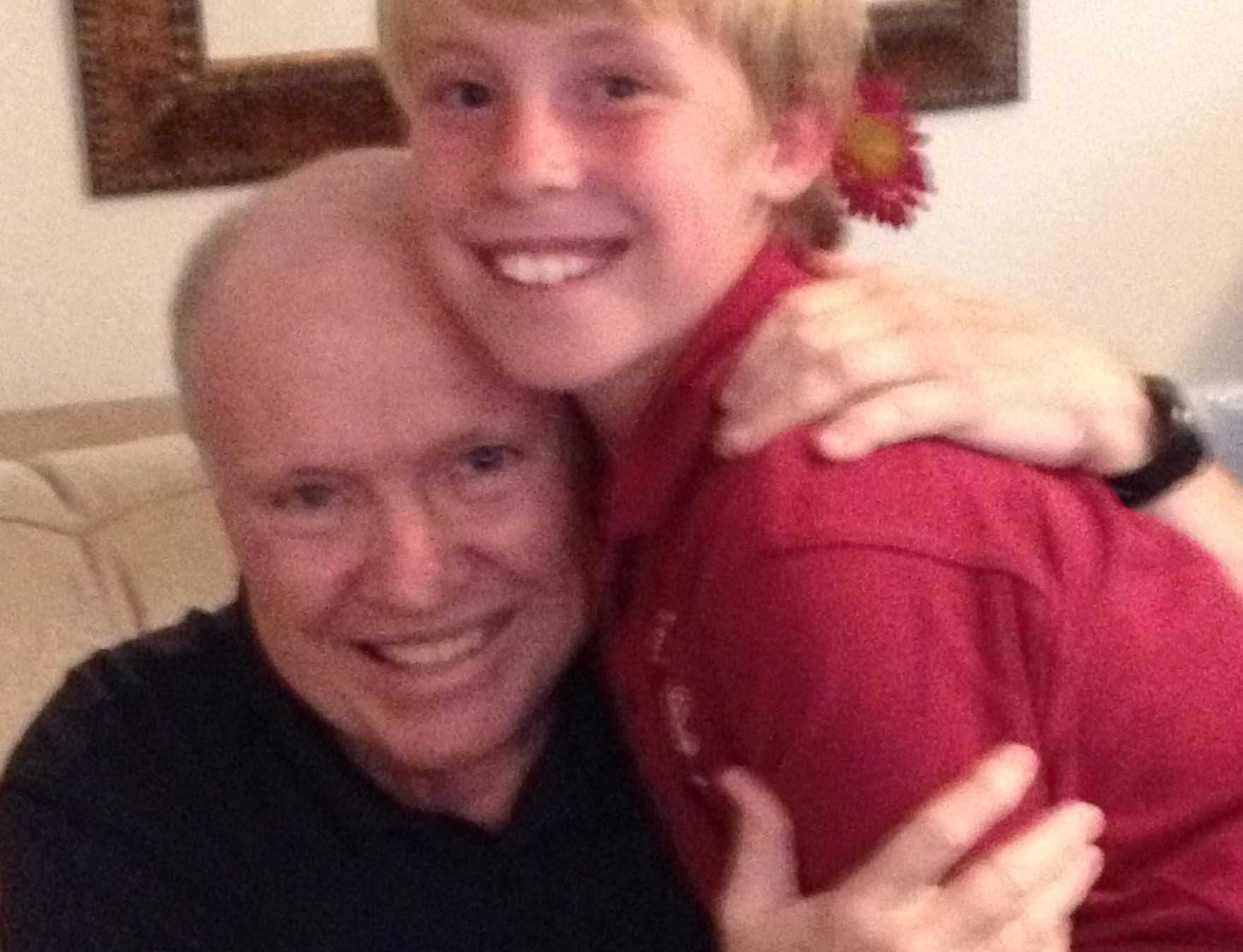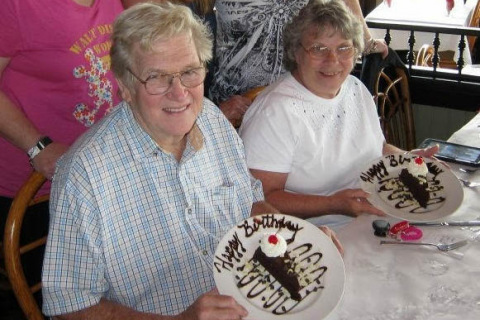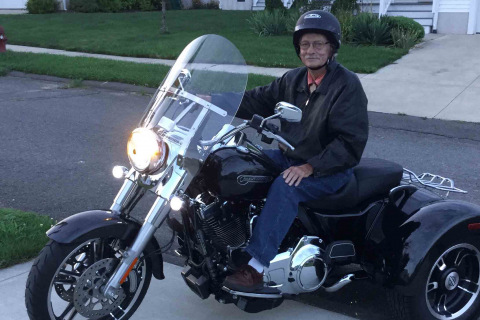A Return to the Putting Green for Mesothelioma Survivor

Fact Checked | Written by: Tim Povtak | Last Update: 10/25/2024 | 5 Min Read
Mesothelioma survivor Ellis Gill never felt so good about a round of golf.
There were no thunderous drives, no long birdie putts and not many pars along the way, but he walked off the course earlier this month feeling like Arnold Palmer in his prime.
He was beaming. Tired, but beaming.
And that’s because the survivor of the deadly asbestos-related cancer is staging his comeback.
“It wasn’t pretty. It was pretty ugly actually, but I felt great about being out there again and finishing the round,” Gill said from his home near New Orleans. “For me, it was huge — both mentally and physically — to play 18 holes.”
Gill, 69, is in the midst of another chemotherapy cycle to keep the latest cancer tumors from growing inside his body.
He was first diagnosed with pleural mesothelioma in the fall of 2014. He underwent an aggressive pleurectomy/decortication surgery at the Ochsner Cancer Institute. He had more surgery in 2015. The first procedure removed new tumors on his small intestines, and the second operation fixed unrelated internal bleeding.
Recovering After a Slow Start
He started this year in the midst of more chemotherapy and an anemia issue that left him so listless that he struggled to walk down the street. His earlier cardiac problems also were taking their toll.
“I was getting depressed…just had no energy whatsoever,” he said. “My legs were so weak. I tried golfing, but only got through three of four holes before I had to quit.”
But once doctors adjusted his blood pressure medicine and chemotherapy dosage levels, his strength started returning. He went back to the fitness center to exercise, and he continued tending his backyard nursery and the beautiful foliage throughout his property.
Gill also rejoined his golfing buddies at the Timberlane Country Club in Gretna, just southeast of New Orleans.
“I probably took 20 more swings than anyone else, but I really enjoyed it,” he said. “I may never be a scratch golfer, but I feel better now than I have in a couple years. I’m hoping 2016 is going to be my year.”
Ochsner’s Mesothelioma Patient Assistance Fund
Gill raved about the care he received at Ochsner, which is rapidly becoming a premier cancer care destination.
He took advantage of the Ochsner Mesothelioma Patient Assistance Fund, founded in 2015 and funded by The Mesothelioma Center and Asbestos.com.
It is the largest cancer patient assistance fund available at Ochsner and designed to alleviate the financial burden that often comes with mesothelioma treatment. Even good health insurance doesn’t cover everything.
“It was a big help for us, for my family,” Gill said. “To have some of our expenses reimbursed was a great help. It was a relief. I knew I was in good hands medically, but there are costs sometimes that you don’t even think about.”
The fund, reserved exclusively for mesothelioma patients, can cover a variety of expenses, including medication, meals, transportation, family lodging or emergency needs.
“Health care is not cheap, and it’s constantly changing. In some cases, the fund could mean the difference between a patient seeking treatment or not seeking treatment,” said Kristin Petry, corporate and foundation relations manager for the Ochsner Health System. “It’s wonderful to have a fund like this to help our mesothelioma patients and their families.”
Mesothelioma Diagnosis Shocks Gill
Gill, who spent much of his working life as a state court reporter, initially believed in 2014 that he only had a lower respiratory infection that wouldn’t subside.
And while X-rays did reveal a problem on the lower part of his lung, they also showed a mass at the top of his lung that was later confirmed as pleural mesothelioma.
“I’m kind of a laid-back person, not easily excitable,” he said. “But when someone tells you it’s a cancer like that, it’s shocking. I was the most surprised person in the world.”
While he thought he would need an out-of-state mesothelioma specialist in New York, Philadelphia or Houston, he discovered the recently created specialty center at nearby Ochsner.
Now, Gill is monitored closely for any new tumor growth. He is exploring the possibility of an immunotherapy clinical trial in Houston, depending upon what his next CT scan shows.
“I’m staying optimistic, and praying now more than I ever have before,” he said. “That helps. I think a positive outlook is so important. Even though there are obstacles, difficult times, you can get past them. You can still live a reasonably normal life again.”
He knows several people who have been hit with other cancers. And they have become an informal support group, sharing stories of hope and life after a diagnosis. They talk about dealing with a new normal, handling drug side effects and what to expect moving forward.
“I can’t wait to get back on the golf course again. Last time, I was a little wobbly toward the end, but I finished and was really encouraged,” he said “It’s good to realize that things may look bad at times, but they can turn for the better down the line. You can’t forget that.”





